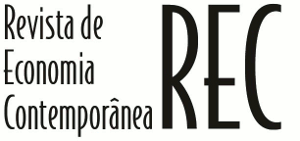ABSTRACT
Healthcare financing is attracting widespread interest due to the coronavirus pandemic. This study aims to assess federal public healthcare financing in Brazil in the light of a legal framework for minimum spending on health and the effects of economic cycles and crises. A literature review showed that public healthcare funding should increase during crises, which is contrary to what fiscal austerity policies postulate. Different formats of fiscal rules for minimum spending on health are analyzed based on the historical evolution of healthcare financing in Brazil. A simulation shows that linking this spending rule to GDP (and especially to current revenue) gives a pro-cyclical character to healthcare financing, which can make it difficult to guarantee health rights in times of crisis. Thus, a debate arises about the need to revise the rule set by the Constitutional Amendment 95/2016 (EC no. 95/2016)BRASIL. Emenda Constitucional nº 95, de 15 de dezembro de 2016. Altera o Ato das Disposições Constitucionais Transitórias, para instituir o Novo Regime Fiscal, e dá outras providências. Diário Oficial da União, Brasília, DF, 2016. and to establish a parameter for growth in public healthcare expenditure that eliminates its pro-cyclical characteristic and enables the needs of the country to be met after the pandemic.
KEYWORDS:
Public healthcare system; fiscal austerity; tax rules

 Thumbnail
Thumbnail
 Source: Own elaboration based on
Source: Own elaboration based on